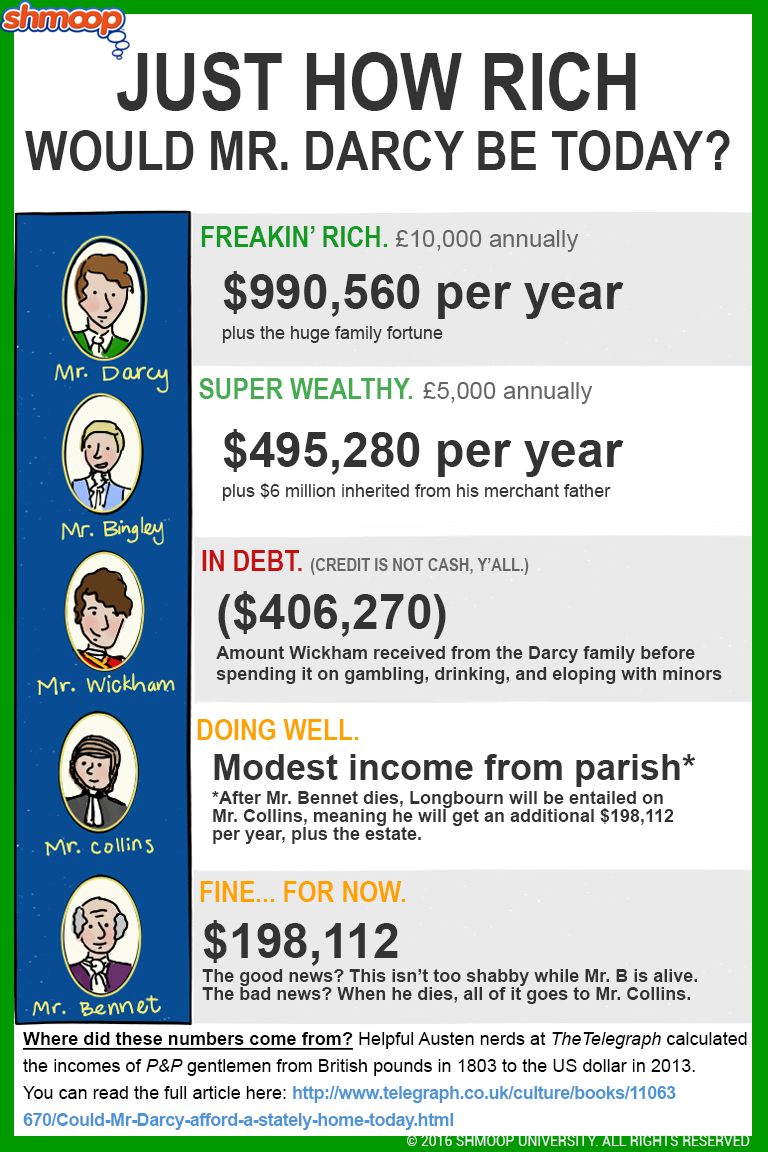Character Analysis

(Click the character infographic to download.)
Darcy's best friend is a nice guy, maybe (okay, definitely) even a little too nice. He's so nice that his friends can lead him around on a string—which obviously means that he's perfect for Jane.
Nice Guys Finish Second
He's so nice that he says "I have never met with so many pleasant girls in [his] life" (3.10), when really he's spent all evening at a country ball with a bunch of rubes. He's so nice that he says Jane is "the most beautiful creature [he] ever beheld" (3.12). He's so nice that he says (gasp!) that he "can be equally happy in either" the town or the country (9.22).
Basically, this is a guy who goes through life liking everybody and everything. We almost wouldn't understand why Darcy puts up with him, except that the narrator explains it: " Bingley was endeared to Darcy by the easiness, openness, and ductility of his temper, though no disposition could offer a greater contrast to his own, and though with his own he never appeared dissatisfied" (4.14). Darcy likes him exactly because he's so different—and because he'll do whatever Darcy says (that's the "ductility of temper"). It's a classic case of odd couple.
Jane likes him, too: "He is just what a young man ought to be … sensible, good-humoured, lively; and I never saw such happy manners!—so much ease, with such perfect good breeding!" (4.1). And, as with Jane, we have to ask: if he's everything that a young man ought to be, why doesn't he end up with the lead?
One word: boring. A few more words: a little on the dim side.
Beta Couple
Before we really dive into Bingley, go back and reread Book 1, Chapter 10, when Darcy and Elizabeth have their first long conversation. We'll wait.
Ready? Okay, did you notice how much philosophizing there was? It's like that any time they have a conversation —just lots of abstract thinking about the way people are supposed to behave. In this case, they are talking about just how much someone should be influenced by what his friends want him to do. Darcy says not at all, while Elizabeth plays devil's advocate (we're guessing, since she's so pigheaded it's hard to imagine her doing anything just because a friend told her to).
What does all this mean? Well, it's a pretty good way to set up Darcy's opposite (Bingley) as just about as spineless and indecisive a man as could be. However much in love with Jane he is, as soon as Darcy tells him to pack up shop, he does it. As soon as his sister and Darcy tell him that Jane isn't really that into him, Bingley is ready to buy it. He only tries again because Mr. Darcy all but gives him "permission" (58.39). When Jane and Bingley finally marry, Mr. Bennet may say it, but we're all thinking it:
You are each of you so complying, that nothing will ever be resolved on; so easy, that every servant will cheat you; and so generous, that you will always exceed your income. (55.37)

(Click the infographic to download.)